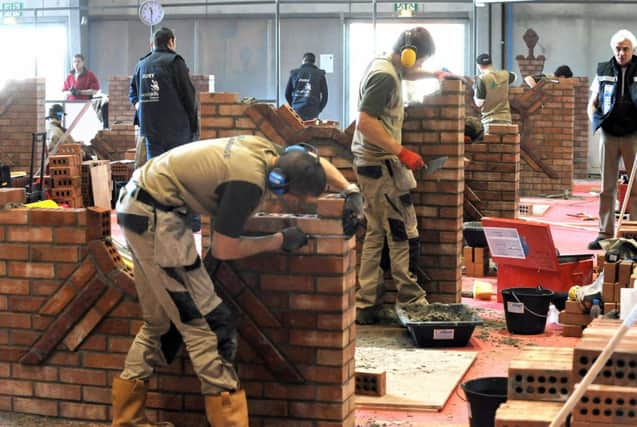Building a new future for young people


AT ACTION for Children, we do not simply do “what it says on the tin”. As well as children, the services we deliver in communities across the UK support vulnerable young people aged up to 25. This is particularly true in Scotland, where almost 50 per cent of our 74 services are geared towards young adults.
Some of our most inventive work takes place with this age group – from homeless accommodation that teaches residents how to manage a household, to groups for young people who have been in prison and want to change the direction of their lives. We always consider the bigger picture. Young people, who are often demonised and disregarded by society, are tomorrow’s adults – and parents.
Advertisement
Hide AdAdvertisement
Hide AdA good example of our innovative approach is Youthbuild, a programme that helps young people who have left school with low qualifications to find employment in the construction industry. When you think of the work of a children’s charity, you don’t think about bricklaying, asbestos awareness and scaffolding training, but these form an important part of what we do at Action for Children Scotland.
The programme is very popular with young people: at a recent intake we had 123 applicants for just 12 places. I believe this is because Youthbuild has a reputation as being effective; 70 per cent of participants go on to secure long-term employment. Contrary to common belief, young people do want to work and we really do give them the tools to do so. As well as delivering services, Action for Children Scotland is a campaigning charity and this year we will launch several new initiatives designed to give young people a voice.
We will encourage young people to be part of the democratic process in the upcoming independence referendum – not influencing their vote, but making sure they have the tools they need to be part of this decision. We will also be working in partnership with young people to speak out on financial exploitation. Young people tell us they feel they are forced to grow up and live alone too early in their lives, and often fall victim to gambling, scams and loan companies as they struggle to be self-sufficient. As well as giving young people the tools and knowledge to avoid such traps, we want to empower them to speak up on this issue.
Last week, the Scottish Government announced that young people will be given the right to stay in foster, kinship or residential care until the age of 21. This is a vital step forward – previously this incredibly vulnerable group was expected to live independently from the age of 16, which we know can be a dangerous and lonely experience. Action for Children is campaigning for this change to be introduced in Wales and it is great to see the Scottish Government taking a lead in committing to provide young people with the support they need and deserve. Yet I believe there is still much to be done to create a nurturing and welcoming place in society for young people.
The stories I hear from those in their teens and early 20s are always the most thought-provoking, distressing and maddening. Many believe they are negatively labelled simply because of their age and, sadly, we see evidence to suggest that this is true.
Action for Children Scotland delivers a programme called Challenge, which gives young people the opportunity to break negative stereotypes by undertaking a piece of work that will benefit their neighbourhood (such as creating a community garden or improving wheelchair access in a local park). These “challenges” create harmony among neighbours – older residents are always impressed, and surprised, with what young people can achieve. But it could easily be argued that these young people shouldn’t have to prove themselves.
In today’s society, the stereotype of the teen in a hoodie still looms large and this simply isn’t right. The young people I encounter through my work are charming, inquisitive and funny. But they are also vulnerable, facing great challenges, and they will make mistakes – we are sometimes quick to forget they are only young. As a society, we must give this group the opportunity to do good, be successful and have a second chance when needed.
• Carol Iddon is director of children’s services at Action for Children Scotland www.actionforchildren.org.uk
SEE ALSO